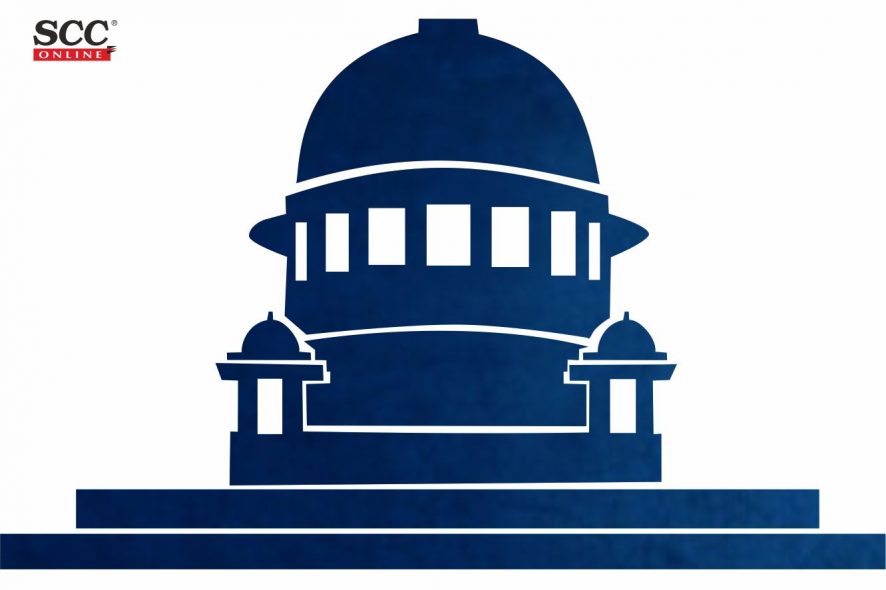Supreme Court: In a case where the Kerala High Court had refused to entertain the plea of Saritha Nair who was disqualified from contesting the elections on the ground that she was convicted in 2 criminal cases, the 3-judge bench of SA Bobde, CJ and AS Bopanna and V. Ramasubramanian*, JJ has held that though the High Court was right in not taking up the election petition but the ground on which it rejected the petition i.e. incurable defects, was wrong.
The Court held that when the petitioner was disqualified from contesting the elections in terms of Section 8(3), she could not have maintained an election petition as “a candidate at such election” in terms of Section 81(1) of the Representation of the People Act, 1951.
Background
In the 2019 Lok Sabha Elections, Saritha Nair filed her nomination on 04.04.2019 in the Ernakulam Constituency. She was to contest as an independent candidate. On 06.04.2019 the nomination of the petitioner was rejected on the ground that she was convicted in 2 criminal case and was sentenced to imprisonment for 3 years in each of those cases by judgments dated 08.06.2015 and 16.02.2016. While she did not dispute the fact of her conviction, it was the case of the petitioner the suspension of her sentence by an appellate/revisional court was enough to save her from the applicability of Section 8(3).
She also filed her nomination from one more constituency, namely Wayanad Constituency and her nomination was rejected even in the said Constituency, for the very same reasons.
She further argued that she had simultaneously filed a nomination in the Amethi Constituency of Uttar Pradesh and that despite disclosure of the very same information about her conviction and pendency of appeals, her nomination was accepted there. Therefore, she contended that 2 different yardsticks cannot be applied.
Grounds for rejection of the Election Petition by the High Court
(i) Lack of proper verification;
(ii) An incomplete prayer; and
(iii) Allegations of serious nature made against the former Chief Minister with a possible leverage not to own up the pleadings.
Analysis
Were the defects incurable?
“A defective verification is a curable defect. An election petition cannot be thrown out in limine, on the ground that the verification is defective.”
The Court held that the High Court committed a grave error in holding the aforementioned 3 defects as incurable. The defects are curable and an opportunity to cure the defects ought to have been given to the petitioner.
Further, the High Court was wrong in thinking that the defective verification of the election petition was a pointer to the game plan of the election petitioner to disown the pleadings at a later stage, especially after making serious allegations against the former Chief Minister.
“If only the High Court had given an opportunity to the petitioner to cure the defects in the verification and if, despite such an opportunity, the petitioner had failed to come up with a proper verification, the High Court could have then held the petitioner guilty of playing hide and seek. The failure of the High Court to give an opportunity to cure the defects is improper.”
The Court, hence, held that though the election petitioner should have been more careful and diligent in incorporating an appropriate relief and making a proper verification but no motives could have been attributed to the petitioner, only because she made serious allegations against someone.
Is suspension of sentence enough to save the petitioner from disqualification under Section 8(3) of the RP Act?
The appellate Court in one case and the revisional Court in another case had suspended only the execution of the sentence of imprisonment and not the conviction. The contention of the petitioner was that the suspension of the sentence was sufficient to save her from the applicability of Section 8(3).
Section 8(3) deals with two aspects:
(i) the conditions for disqualification; and
(ii) the period of disqualification.
The conditions for disqualification are
(i) conviction for any offence other than an offence referred to in Subsections (1) and (2); and
(ii) sentence of imprisonment for not less than two years.
In so far as the period of disqualification is concerned, Section 8(3) says that the disqualification will commence from the date of conviction. This is made clear by the usage of the words “shall be disqualified from the date of such conviction”. It is needless to state that the words “the date” appearing in Section 8(3) refers to the event of conviction and it is post facto. The disqualification which commences from the date of conviction, continues till the expiry of a period of six years from the date of his release. Hence,
“… the date of conviction is what determines the date of commencement of the period of disqualification. However, it is date of release which determines the date on which the disqualification will cease to have effect.”
Hence, it is clear that the mere suspension of the execution of the sentence is not sufficient to take the rigour out of Section 8(3).
Further, in Lily Thomas it was held that a Member of Parliament or the State Legislature who suffers a frivolous conviction, will not be remediless. The appellate Court has ample powers under Section 389(1) of the Code, to stay the conviction as well as the sentence and that wherever a stay of conviction itself has been granted, the disqualification will not operate.
Hence, the disqualification under Section 8(3) will continue so long as there is no stay of conviction. Since, the petitioner could not obtain a stay of conviction but obtained only a stay of execution of the sentence, her nominations were validly rejected by the Returning Officer.
“Merely because the Returning Officer in Amethi Constituency committed an error in overlooking this fact, the petitioner cannot plead estoppel against statutory prescription.”
[Saritha S. Nair v. Hibi Eden, 2020 SCC OnLine SC 1006, decided on 09.12.2020]
*Justice V. Ramasubramanian has penned this judgment







